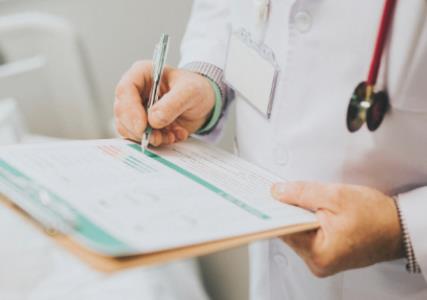
Ionis Pharmaceuticals announced the first person with ALS was given their experimental antisense oligonucleotide (ASO) treatment, known as BIIB078, specifically targeting C9orf72 in a phase 1 clinical trial being executed by their development partner, Biogen. According to the partners, 34% of familial ALS cases are related to C9orf72, making it the most common familial ALS gene.
While there is still some debate about the specific manner in which an error in the C9orf72 gene may cause ALS, evidence suggests that it could be either malformed RNAs or proteins (DRPs). The ASO in this trial targets the messenger RNA emerging from the gene and prevents it from being used in the formation of proteins. Preclinical researchers have found this approach to be useful, extending survival and in some cases, reversing the loss of muscle function in ALS models.
This phase 1 clinical trial is entirely focused on determining the safety of BIIB078. The trial will enroll nearly 60 people with ALS, most of which will receive 3 doses (“loading” doses) on day one and day 3 and then, over a period of several days, additional “maintenance” doses of BIIB078. Clinical researchers will follow participants in the multiple-dose phase 1 study for nearly a year and document any adverse events. Should safety be established, it is highly likely that a longer, multi-dose Phase 2 study will be commissioned by Ionis and Biogen.
This is not, however, the first clinical trial that Ionis and Biogen have partnered on. They are also collaborating on phase 2 trial of a different ASO treatment called BIIB067, which aims to target the SOD1 ALS gene mutation. A phase 1 safety trial of that ASO completed enrollment earlier in 2018. The partners added the opportunity for participants in that study to convert into a follow-up long-term evaluation study in which they would receive additional doses of the proposed treatment. That long term evaluation study could set the basis for the appropriate dosing regimen to be used in a pivotal phase 3 study of the ground-breaking therapeutic approach in ALS.
Interested patients are advised that they must be able to show evidence of having tested positive for a pathogenic expansion in the C9orf72 gene to be considered for enrollment. Accepted patients are permitted to take riluzole and/or edaravone while in the ASO trial, so long as they have established use beforehand. Full enrollment criteria and a list of ALS clinics involved is available here or by emailing PatientCenter@Biogen.com.
The first person was dosed according to a tweet from Ionis. At the time of the announcement, Nebraska was listed as the only enrollment site recruiting, so it is assumed the treatment was delivered there. You can read about other potential treatments for C9orf72 here. Over the last number of years, ALS TDI developed significant expertise in the study of C9orf72 biology and presented several posters, including data regarding the presence of the gene in people enrolled in its Precision Medicine Program at the 2017 International Symposium on ALS/MND Research.
Helpful Links: